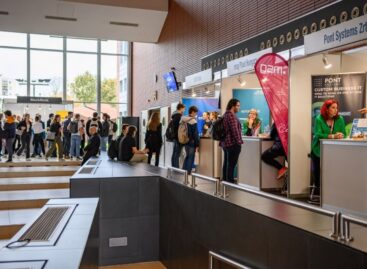Brau Beviale 2010: the leading trade fair of Europe’s beverage industry
Raw material, technology, logistics and marketing trends will be in the focus of this year’s Brau Beviale, held in Nürnberg on 10-12 November. Recently the organisers gave an international press conference in Prague’s Hotel Pariz. In her introduction, press officer Petra Trommer told that beverages were one of the most innovative product group in food retail. According to her, 1,400 exhibitors and 34,000 visitors will participate in Brau Beviale 2010. Roland Kast, Messe Nürnberg’s project leader emphasised that in this year’s programme beverage manufacturing, bottling and packaging are going to be in the limelight. What about retail? Well, the goal is to make more people drink ‘packaged beverages’ instead of tap water. In Western Europe, the US and Australia 68 percent of the population quench their thirst this way – this proportion is only 22 percent in Eastern Europe and Latin America, and 10 percent in Asia, the Near East and Africa – reveals a survey by Euromonitor International. Rolf Keller, Nürnberg Messe’s head of section told that in Central and Eastern Europe recession did not hit the market as hard as in Western Europe.
Gert Erhardt, the event’s professional advisor called attention to the slogan of successful manufacturers: ‘Drink yourself fit and healthy.’ He told that in the last five years beverages with an added value and functional drinks managed to grow sales the most. For instance, people drink 3.3 billion litres of energy drink per year – consumption increased by 2 billion litres in seven years and until 2013 another 1 billion-litre growth is forecasted.
Related news
Related news
40 secure jobs, sustainable solutions – new BURGER KING® in Csepel
🎧 Hallgasd a cikket: Lejátszás Szünet Folytatás Leállítás Nyelv: Auto…
Read more >




